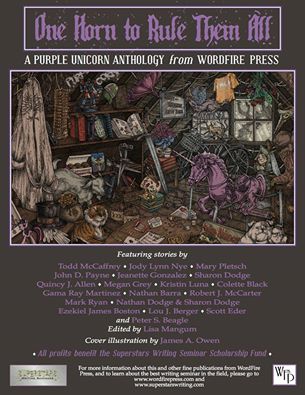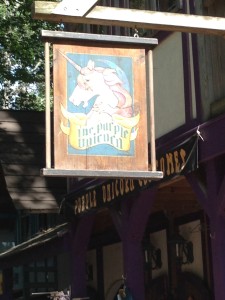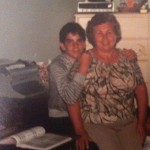A guest post by Al Onia.
“Write what you know.” One of those pieces of advice intended to get you focused. Or, to keep you from writing. I mainly write speculative fiction, so in my case, it’s “write what you don’t know, but wish.” Then add another layer. I write what I like to read. Sounds simple; but what do I like to read?
What draws me in and what authors do I return to and why? How do I know the experience and invested time will be worthwhile?
I like to be immersed in a world which the author has taken time to know. It doesn’t have to be detailed excruciatingly but one can tell if the author has worked it all out so that the setting, (physical, economic, social, political, etc.) works, in the background. This provides the stimuli for the characters to act and react realistically.
So we begin with a consistent, believable setting. The effort to create this in mystery and even conventional horror genres is different than SF or fantasy. The setting must be no less contradictory to what the reader knows or expects. Now, I’m immersed in the author’s world, my disbelief is suspended, what’s next?
Character and plot arcs which intersect, in conflict. Goals which matter; inaction will be fatal. Big points for originality.
I desire characters who exhibit psychological realism. The protagonist may be flawed, may be damaged beyond retrieval, but I want to see their actions and motivations portrayed believably. Their flaws are often the main reason they are in conflict with their environment. They find themselves in conflict willingly or not, but inevitably. Now the writer shows his or her talent by solving the issue through exploiting the character’s weaknesses but building on their strengths as well. And I believe the protagonist should have some strength, otherwise why should I care about them? Making me care about them is the tough art. Put them in a familiar quandary, something universal for the reader to identify with (broken relationship, loss of a loved one or thing, financial hardship, disease, injury, injustice).
I read for entertainment. I write to entertain. I read to learn, not to be converted. I write to teach, not preach. The best writers let me take away their interpretation of an issue of importance. Not necessarily to convince me, but to stimulate my own thoughts on the subject.
The other lure for me is the book containing a ‘big idea’. Hard to define in absolutes but some authors consistently produce a concept and character(s) which transcend the genre; epic in design and originality. Think “The City and The City” by China Mieville.
So much for ‘critical reading’. Sometimes I read for sheer brain candy. Reading to decompress from life. These are the books with no hidden message but I still have my standards. Natural storytellers (Robert E. Howard, William Campbell Gault, Lester Dent, Walter Gibson) can create a setting and characters in conflict in a dozen strokes of their writer’s brush; like a pen artist creating a portrait or landscape in the simplest of lines. They make it look easy but like the artist, it took many false strokes and many wrong words before it became ‘natural’. They apprenticed under the gun of a penny or less per word in the pulps. They learned quickly because they had to eat. I don’t read them critically, as I would the aforementioned China Mieville, William Gibson or Peter Watts (three of the more consistent and original writers working in spec fic) but I do analyze passages which work well. Again the fewest strokes of the brush technique to paint the picture before getting on with the action, which is why I dropped by in the first place.
Summarizing, I appreciate and look for: a consistent background which functions almost as another character, widening the options for the protagonist’s conflict; psychological realism where the characters behave consistently within their limitations and strengths and use both to resolve the conflicts; and originality. I hope I succeed at some level incorporating these attributes in my own writing.
 Al Onia is a geophysicist living in Calgary, Canada. His debut novel Javenny was released by Bundoran Press in August 2014. His short fiction has appeared in Ares, Perihelion SF, On Spec, The Speculative Edge, Heroic Fantasy Quarterly, Spinetingler, Marion Zimmer Bradley and the anthologies Casserole Diplomacy, Body-Smith 401, North of Infinity and Warrior Wisewoman 3. Al is a two-time Aurora Award finalist in the short story category. You can visit Al at: http://ajonia.com
Al Onia is a geophysicist living in Calgary, Canada. His debut novel Javenny was released by Bundoran Press in August 2014. His short fiction has appeared in Ares, Perihelion SF, On Spec, The Speculative Edge, Heroic Fantasy Quarterly, Spinetingler, Marion Zimmer Bradley and the anthologies Casserole Diplomacy, Body-Smith 401, North of Infinity and Warrior Wisewoman 3. Al is a two-time Aurora Award finalist in the short story category. You can visit Al at: http://ajonia.com






